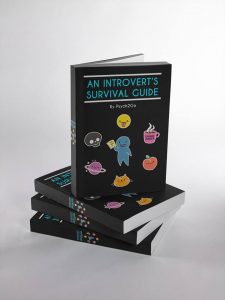6 Ways You Can Break Free from Your Trust Issues

Psychologists have reported that within the past 10 years, there has been a rise in mistrust between partners in romantic relationships. With the widespread of technology, it makes it easy to connect and reconnect with others. But technology can cause people to feel isolated just as much as it expands our world of networking. As a result, social connection is stifled from the challenges of being vulnerable. Psych2Go shares with you 6 ways you can break free from your trust issues:

1. Ask yourself how your reactions line up with reality.
How you feel is valid because it is from our feelings that we experience the true complexity of human nature. That’s why we endure episodes of anger or sadness when things are going wrong. We have emotions to tell us that something isn’t working, which encourage us to try something new. But, sometimes those emotions can intensify and get the best of us. As a result, our reactions can distract us from problem-solving when we forget to step back into reality and focus on ways to build ourselves back up. The thoughts we have may not always be an honest perception of what is happening. It’s important to recognize when you’re quick to close yourself up from someone because you expect the worst, even though it hasn’t happened.

2. Learn to be non-defensive when you communicate.
We hold onto things because we refuse to let go. This can cause us to be single-minded or adapt a black-and-white, all-or-nothing way of thinking, which can be incredibly dangerous territory. When we’re scared, we want certainty, even if we have to create it ourselves. That’s where the defensiveness kicks in. People like consistency. Even if a life situation is toxic, they may be hesitant to embrace change because familiarity is more important to them. That’s why old habits are hard to break. This includes our communication patterns.
Learn to be non-defensive by trying to understand where the other person is coming from. Ask yourself if they’re an actual threat, or if that’s what you’ve been training yourself to believe. Chances are, people take the time to talk to you because they care about you.
For affordable online couples counselling, check out this page: https://www.regain.us/start/

3. Let people know what you need and be direct about it.
Communication is a two-way street. People aren’t mind readers. You can’t drop hints and expect people to play detective and understand what you need. In order to build trust, you have to be open and honest. Whether the other person is willing to fulfill those needs is another story, but without offering that information first, it’s hard to establish anything to work towards. Part of the reason why people have trust issues is because they are afraid of outcomes and getting hurt. As a result, they close up, but forget that getting hurt is part of the process of growing and cultivating deep relationships. Trust issues are developed when too much focus is concentrated on the pain, but not enough on overcoming the pain.

4. Give people a chance to show you who they are.
Building any type of relationship, whether it’s romantic or platonic takes time and work. We are the era of instant gratification. People just want things to somehow click. But it doesn’t work that way. The same goes for trust. It’s impossible to put all our cards on the table in one night. People are complex and layered. It’s wise to invest time in people we are actually willing to get to know on a deeper level. But this is not to be mistaken for dismissing others because we are unwilling to look past their imperfections.
People often try to look for perfection when they have trust issues. As a result, they may seek perfection in others in order to avoid conflict. But superficial relationships aren’t fulfilling nor healthy for making social connections. Give people time to show you their true colors and you may be surprised that you can go through challenges well together.

5. Practice open-ended conversations that allow disagreements.
When we don’t trust people and they say something we disagree with, it’s easy to fall into the trap of anger or bottling our own opinions, because there’s a fear that they will leave us or see us as being less. Rather than holding onto insecurity, practice having open conversations where debate is welcome. It’s healthy to disagree. Showing people your perspective also means being vulnerable with them. But, make room for others to disagree with you, too. It’s important to understand how people can view things differently without a need to control, dominate, or mold one another.

6. Confront your fears and don’t allow them to hold control over you.
Breaking free from trust issues means letting go. It’s okay to be scared. Fear doesn’t ever truly go away, but we have a say in whether or not that fear holds us back. My boyfriend always asks me if I want to feed the good wolf or the bad wolf, because he knows I have a habit of building walls the very minute I get scared again. Learn to feed the good wolf because it’ll give you the power to work through your struggles openly and honestly. Don’t allow your insecurity or self-criticism bring you down. You have it in you to connect and cultivate lasting relationships.
What do you think?
What holds you back from trusting others? Psych2Go would love to hear your thoughts! Please be sure to leave a comment down below!
Want to say hello or send a personal message? You can reach the author at catherine@psych2go.net. ♥
If you enjoyed this article, then you may also like 5 Reasons Why You Don’t Need to Be Afraid of Therapy or 5 Ways to Stay Motivated Once You’re Ready to Do Something.
Looking for more reading supplies? Please check out our e-book: An Introvert’s Survival Guide! Get your copy today!

Love our content and want to continue supporting us? Visit our Patreon!
References:
Bundrant, M. (2018, April 14). 10 Signs You Have Trust Issues and How to Begin Healing. Psych Central. Retrieved April 17, 2018.
Catlett, J. (2018). Trust Issues: Why Is It So Hard for Some People to Trust? PsychAlive. Retrieved April 17, 2018.


I lose trust and belief in other people when I feel that they are not listening and / or if they interrupt me when I am expressing my feelings and thoughts. I find some people indifferent and that leads me to lose trust.